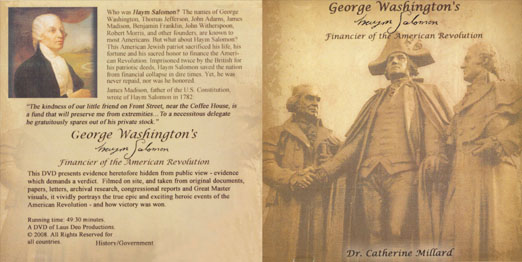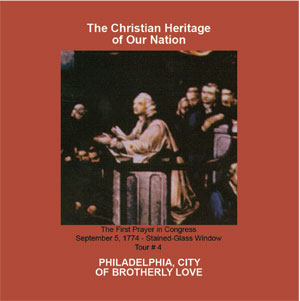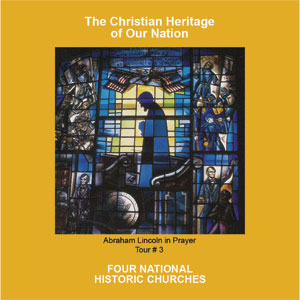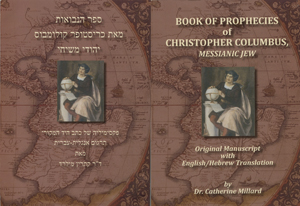Adullam Films’ 2010 production stated that the philosophy of the founding fathers came from the atheistic “Enlightenment.” Could you explain these authors’ writings, which they studied – forming their ideas, principles and moral conduct?
Rev. Dr. John Tillotson’s work:
The Indispensable NECESSITY of the KNOWLEDGE of the
HOLY SCRIPTURE
In order to MAN’s Eternal Salvation and –
Ignorance therein; The Mother of Idolatry and Superstition
asserted in a
SERMON
Preached by
JOHN TILLOTSON, D.D.
Dean of Canterbury, 1685.
Printed for the Benefit of the Poor. 1709.
Matthew 23:13
“Woe unto you Scribes and Pharisees, Hypocrites; for ye shut up the Kingdom of Heaven against Men; for ye neither go in yourselves, neither suffer ye them that are entering to go in.”
The Scribes so often mentioned in the Gospel, were the great Doctors among the Jews, the Teachers and Interpreters of the Law of God. And because many of them were of the sect of the Pharisees, which above all others pretended to skill and knowledge in the Law, therefore it is our blessed Saviour does so often put the Scribes and Pharisees together. And these were the men of chief authority in the Jewish Church; Who equaled their own unwritten word and traditions with the law of God: Nay, our Saviour tells us they made the Commandments of God of none effect by their traditions. They did in effect assume to themselves infallibility; and all that opposed and contradicted them, they branded with the odious name of Heretics. Against these our Saviour denounceth this Woe here in the text, Woe unto you Scribes and Pharisees, Hypocrites, for ye shut up the Kingdom of Heaven against men, etc.
All the difficulty in the Words is, what is here meant by shutting up the Kingdom of Heaven against men: St. Luke expresseth it more plainly, ye have taken away the key of knowledge, ye entered not into yourselves, and them that were entering in, ye hindered. By putting these two expressions together, we shall the more easily come at the meaning of the text. Ye have taken away the key of knowledge, and have shut up the Kingdom of Heaven against men. This metaphor of the key of knowledge is undoubted an allusion to that known custom among the Jews in the admission of their Doctors. For to whomsoever they gave authority to interpret the Law and the Prophets, they were solemnly admitted into that office by delivering to them a key and a Table-book. So that by the key of knowledge is here meant the interpretation and understanding of the Scriptures; and by taking away the key of knowledge, not only that they arrogated to themselves alone the understanding of the Scriptures, but likewise that they had conveyed away this key of knowledge, and as it were hid it out of the way neither using it themselves as they ought, nor suffering others to make use of it…
Knowledge is necessary to Religion: It is necessary to the being of it; and necessary to the life and practice of it. Without Faith (says the Apostle, it is impossible to please God; because faith is an act of the understanding, and does necessarily suppose some knowledge and apprehension of what we believe. To all acts of Religion there is necessarily required some act of the understanding; so that without knowledge there can be no devotion in the service of God, no obedience to His Laws. Religion begins in the understanding, and from thence descends upon the heart and life, If ye know these things, (says our Saviour) happy are ye if ye do them. We must first know God before we can worship Him; and understand what is His Will, before we can do it…1
___________________________
The Works of
Mr. John Milton
Printed in the Year MDCXCVII (1697)
“Of True Religion, Heresie, Schism, Toleration,
And what best means may be used against this Growth of POPERY.”
The Author J. MILTON
It is unknown to no man, who knows ought of concernment among us, that the increase of Popery is at this day no small trouble and offense to the greatest part of the Nation: and the rejoicing of all good men that it is so; the more their rejoicing, that God hath giv’n a heart to the people to remember still their great and happy deliverance from Popish Thraldom, and to esteem so highly the precious benefit of His Gospel, so freely and so peaceably enjoy’d among them. Since therefore some have already in public with many considerable arguments, exhorted the people to beware the growth of this Romish Weed; I thought it no less than a common duty to lend my hand, how unable soever, to so good a purpose. I will not now enter into the Labyrinth of Councils and Fathers, an entangled wood which the Papists love to fight in, not with hope of victory, but to obscure the shame of an open overthrow: which yet in that kind of combat, many heretofore, and one of late, hath eminently giv’n them. And such manner of dispute with them, to learned men is useful and very commendable: But I shall insist now on what is plainer to common apprehension, and what I have to say, without longer introduction.
True Religion is the true worship and service of God, learned and believ’d from the Word of God only. No man or angel can know how God would be worshipp’d and serv’d, unless God reveal it. He hath reveal’d and taught it us in the Holy Scriptures by inspir’d Ministers, and in the Gospels by His own Son and His Apostles, with strictest commands to reject all other traditions or additions whatsoever. According to that of St. Paul, “Though we or an angel from Heaven preach any other Gospel unto you, than that which we have preached unto you, let him be Anathema or Accursed.* And Deuteronomy 4:2: “Ye shall not add to the Word which I command you, neither shall you diminish ought from it.” Revelation 22:18, 19: “If any man shall add, etc. If any man shall take away from the Words, etc.” With good and religious reason therefore all Protestant churches with one consent and particularly the Church of England in her 39 Articles, Article 6th, 19th, 20th, 21st and elsewhere, maintain these two points, as the main principles of true Religion: That the rule of true Religion is the Word of God only: And that their Faith ought not to be an implicit Faith, i.e., to believe tho’ as the Church believes against or without express authority of Scripture…
I will now as briefly show what is false Religion or Heresy, which will be done as easily: For of contraries the definitions must needs be contrary. Heresy therefore is a Religion taken up and believ’d from the traditions of men and additions to the Word of God. Whence also it follows clearly, that of all known Sects or pretended Religions at this day in Christendom, Popery is the only or the greatest heresy: And he who is so forward to brand all others for heretics, the obstinate Papist, the only Heretic. Hence one of their own famous writers found just cause to stile the Romish Church, Mother of Error, School of Heresie. And whereas the Papist boasts himself to be a Roman Catholic, it is mere contradiction, one of the Pope’s Bulls, as if he should say, Universal Particular a Catholic Schismatic. For Catholic in the Greek signifies Universal: And the Christian Church was so call’d as consisting of all nations to whom the Gospel was to be preached, in contradiction to the Jewish Church, which consisted, for the most part of Jews only.
Sects may be in a true Church as well as in a false, when men follow the doctrine too much for the Teacher’s sake, whom they think almost infallible; and this becomes through infirmity, implicit faith, and the name Sectary pertains to such a disciple.
Schism is a rent or division in the Church, when it comes to the separating of congregations; and may also happen to a true Church as a well as to a false; yet in the true needs not tend to the breaking of communion; if they can agree in the right administration of that wherein they communicate, keeping their other opinions to themselves, not being destructive to Faith. The Pharisees and Saducees were two Sects, yet both meet together in their common worship of God at Jerusalem. But here the Papist will angrily demand, what! Are Lutherans, Calvinists, Anabaptists, Socinians, Arminians, no Heretics? I answer all these may have some errors; but are no Heretics. Heresy is the will and choice profestly against Scripture; Error is against the will, in misunderstanding the Scripture after all sincere endeavours to understand it rightly: Hence it was said well by one of the Ancients, “Err I may, but a Heretic I will not be.” It is a human frailty to err, and no man is infallible here on earth. But so long as all these profess to set the Word of God only before them as the Rule of Faith and Obedience; and use all diligence and sincerity of heart, by reading, by learning, by study, by prayer for illumination of the Holy Spirit, to understand the Rule and to obey it, they have done what man can do: God will assuredly pardon them, as He did the friends of Job, good and pious men, tho’ much mistaken, as there it appears, in some points of doctrine…
More amply to understand this, may he read the 14th and 15th Chapters to the Romans and the contents of the 14th set forth no doubt but with full authority of the Church of England; the gloss is this: Men may not contemn nor condemn one the other for things indifferent. And in the 6th Article above mentioned, whatsoever is not read in Holy Scripture, nor may be proved thereby, is not to be required of any man as an Article of Faith, or necessary to salvation. And certainly what is not so is not to be required at all; as being an addition to the Word of God expressly forbidden.
Let us now inquire whether Popery be tolerable or no. Popery is a double thing to deal with, and claims a twofold power, Ecclesiastical and Political, both usurped, and the one supporting the other.
But Ecclesiastical is ever pretended Political. The Pope by this mixed faculty pretends right to Kingdoms and States, and especially to this of England, thrones and unthrones Kings, and absolves the people from their obedience to them; sometimes interdicts to whole nations the public worship of God, shutting up their Churches: And was wont to drain away the greatest part of the wealth of this then miserable land, as part of his patrimony, to maintain the pride and luxury of his court and Prelates: And now since, thro’ the infinite mercy and favour of God, we have shaken off his Babylonish yoke, hath not ceased by his spies and agents, Bulls and Emissaries, once to destroy both King and Parliament (Guy Fawkes and the Jesuits’ Gunpowder Plot) perpetually to seduce, corrupt and pervert as many as they can of the people. Whether therefore it be fit or reasonable to tolerate men thus principled in Religion towards the State, I submit it to the consideration of all Magistrates, who are best able to provide for their own and public safety. As for tolerating the exercise of their Religion, supposing their State activities not to be dangerous, I answer, that toleration is either public or private; and the exercise of their Religion as far as it is idolatrous, can be tolerated neither way: Not publicly, without grievous and unsufferable scandal given to all conscientious beholders; not privately, without great offense to God, declared against all kind of idolatry, tho’ secret. Ezekiel 8:7,8. “And He brought me to the door of the Court, and when I looked, behold a hole in the wall. Then said He unto me, son of man, dig now in the wall, and when I had digged, behold a door, and He said unto me, go in and behold the wicked abominations that they do here.” And verse 12: “Then said He unto me, son of man, hast thou seen what the Ancients of the House of Israel are doing in the dark? etc. And it appears by the whole chapter, that God was no less offended with these secret idolatries than with those in public; and no less provoked, than to bring on and hasten His judgments on the whole land for these also.
Having shown thus, that Popery, as being idolatrous, is not to be tolerated either in public or in private; it must be now thought how to remove it and hinder the growth thereof…2
The works of John Milton, continued:
THE TENURE OF KINGS AND MAGISTRATES:
Proving
That it is lawful, and hath been held so thro’ all ages, for any who
have the Power to call to account a Tyrant, or wicked King, and
after due conviction, to depose and put him to Death; if the
ordinary MAGISTRATE have neglected, or denied to do it.
And that they, who, of late, so much blame Deposing, as the men
that did it themselves.
Published now the second time with some additions, and many
testimonies also added out of the best and learnedest among
Protestants – Divines asserting the Position of this Book.
The Author J. MILTON
Printed in the year, MDCXCVII (1697)
If men within themselves would be governed by Reason, and not generally give up their understanding to a double Tyranny, of custom from without, and blind affections within, they would discern better what it is to favour and uphold the Tyrant of a nation. But being slaves within doors, no wonder that they strive so much to have the Public State conformably governed to the inward vitious Rule, by which they govern themselves. For indeed, none can love Freedom heartily, but good men; the rest love not Freedom, but License; which never hath more scope or more indulgence than under Tyrants…
Therefore Kingdom and Magistracy, whether Supreme or Subordinate, is without difference called a human ordinance, I Peter 2:13, etc., which we are taught is the will of God we should alike submit to, so far as for the punishment of evil doers and the encouragement of them that do well. Submit, sayeth he, as free men. But to any civil power unaccountable, unquestionable and not to be resisted, no, not in wickedness and violent actions, how can we submit as free men? There is no power but of God, sayeth Paul, Romans 13, as much as to say, God put it into man’s heart to find out that way at first for common peace and preservation, approving the exercise thereof; else it contradicts Peter, who calls the same authority an ordinance of man.
It must be also understood of lawful and just power, else we read of great power in the affairs and Kingdoms of the world permitted to the Devil: For, sayeth he, to Christ, Luke 4:6: All this power will I give thee and the glory of them, for it is delivered to me, and to whomsoever I will, I give it: Neither did he lie, or Christ gainsay what he affirmed; for in the 13th of the Revelation we read how the Dragon gave to the Beast his power, his seat and great authority: which Beast so authorized, most expound to be the Tyrannical Powers and Kingdoms of the earth. Therefore St. Paul in the fore-cited Chapter tells us, that such magistrates he means, as are, not a Terror to the good but to the evil; such as bear not the sword in vain; but to punish offenders and to encourage the good. If such only be mentioned here as powers to be obeyed and our submission to them only required, then doubtless those powers that do the contrary, are no powers ordained of God, and by consequence no obligation laid upon us to obey or not to resist them…3
___________________________
John Locke on Education:
Directions Concerning Education
by
John Locke
Printed in Oxford, England.
…That which every gentleman desires that takes care of his Education for his son besides the estate he leaves him are I suppose these four things, Virtue, Wisdom, Breeding and Learning. I will not trouble myself whether those words do not some of them stand for the same thing or really include one another. I leave to men skilled in words the glory of criticizing. It suffices me if I make myself understood, and I hope you will find no difficulty to comprehend my meaning.
I place virtue as the first and most necessary of those endowments that belong to a man or a gentleman as absolutely necessary to make him valued and beloved by others, acceptable and tolerable to himself. Without that I think he will neither be happy in this or the other world. As the foundation of this there ought very early to be imprinted on his mind a true notion of God as of the Supreme Being, from whom we receive all our good, that loves us and gives us all things, and so work him into a love and reverence of Him…
Wisdom I take in the vulgar acceptation for a man’s managing his business ably and with foresight in this world. This is the product of a good natural temper, application of mind, and experience together, and so not to be taught children. The greatest thing that in them can be done towards it is to hinder them as much as may be from being cunning, which being the ape of wisdom is the most distant from it that can be, and as an ape for the likeness it has to a man, wanting what really should make him so, is by so much the uglier, cunning is only the want of understanding, which, because it cannot compass its business by direct ways, would do it by a trick and circumvention, and the mischief of it is, a cunning trick helps but once, but hinders forever after. No cover was ever made either so big or so fine as to hide itself. Nobody was ever so cunning as to conceal their being so, and when they are once discovered, everybody is shy, everybody distrustful of them, and all the world forwardly join to oppose and defeat them, whilst the open direct wise man has everybody make way for him, and goes directly to his business…The next good quality belonging to a gentleman is good breeding and civility, and tho’ this has the name of good breeding as if peculiarly the effect of Education, yet I would not have young children much perplexed about it, I mean about putting off their hats and making legs modishly. Teach them to be good-natured if you can, and this sort of good manners will not be wanting, civility being in truth nothing but a care not to show any slighting or contempt of anyone in conversation…4
___________________________
Rev. Dr. Isaac Watts’ Works:
MISCELLANEOUS THOUGHTS
in
Prose and Verse
on
NATURAL, MORAL and DIVINE
SUBJECTS:
Written Chiefly in Younger Years.
by
ISAAC WATTS, D.D.
An EPITAPH on BIGOTRY
Here lies, and may it here forever lie,
The carcass of dead piety,
Shadow of grace, substantial sin,
Religion’s mask and gaudy dress,
The form and foe of holiness,
The image and the plague of zeal divine,
Its dwelling was the church; in double shape,
Half was a murdering wolf, and half a mimic ape.
A monster horrid to the sight,
Hideous, deformed, and void of light;
’Twas born at Rome,
’Twas nursed at home,
In the dark cloisters of the Vatican;
Its lungs inspired with heaving lies,
Its bulk well fastened to prodigious size
With gunpowder and blood of man.
Ancient inhabitant of Spain,
And long in France a welcome guest;
Over the continent and main,
Over the old world and the new,
Mankind and money to pursue,
On dragon’s wings the harpy flew,
And gave its feet no rest…
Under the name and habit of the church,
Under the countenance and clothing of a sheep,
It became the most savage and rampant
Plunderer and waster of human society,
Made fearful inroads on all civil commerce,
And left religious liberty expiring.
A warrior well furnished
With all arts politic and polite,
With the knotty embarrassments of criticism,
The hampering chains and subtilties of logic,
And the javelins of pen and tongue,
With the roaring ordinance of councils and canons,
And all the artillery of the schools and gown…
Fury, hatred and mischief,
Love of this world, pride and disdain,
With perjuries, falsehoods, and pious frauds,
And raging party-zeal,
Were its necessary and everlasting attendants.
High encomiums and endless applause
Of guides infallible, and faith implicit,
Of hereditary and divine right,
Of unlimited power and passive obedience
To tyrant priests and kings,
With the immortal praise and merit
Of stupid ignorance, and bland submission,
Were heralds to prepare its way.
Trifles, and tricks, and solemn fooleries,
Legends and silly tales,
Old almanacs, and mouldy, musty reliques,
Sweepings of ancient tombs,
Vows, pilgrimages, charms and consecrations,
Rites obsolete and novel ceremonies
Both decent and indecent,
Monkish vows, and superstitious austerities,
With words of sacerdotal absolution,
And sacerdotal vengeance,
Squibs, crackers, excommunications, curses,
Roaring bulls, and vain thunders,
Mixed up with priestly choler, bitter and black,
Were its delicious food…
At what dark hour soever
The cursed divan at Rome were met,
Catholic faith to propagate,
This monster filled the chair.
The conclave dressed in bonnets red,
With three-crowned tyrant at their head,
Made it their privy-counselor.
The inquisition court (a bloody crew,
Artful to set the solemn trap
That lets no heretic escape)
Owns it her president and founder too.
Oft as the church in east or western lands
Rising against herself in arms,
In her own blood imbrued her hands,
This chief led on the unnatural war,
Or did the bloody standards bear,
Or sound the fierce alarms;
Victorious still. (And what can more be said
Of all the living warriors, or the heroes dead?)
Britain, a land well stored with every good,
That nature, law, religion give;
A land where sacred freedom thrives;
Blest isle! If her own weal she understood!
Her sons, immured with guardian ocean, sleep,
And castles floating on the deep,
Fenced from all foreign foes, O shame! O sin!
Her sons had let this baleful mischief in;
This hellish fury, who with flattering breath
Did first divide, and then devour,
And made wild waste wherever she spread her power,
Behold she meets her fatal hour
And lies enchained in death.
Shout at the grave, O traveler!
Triumphant joys that reach the skies
Are here the justest obsequies:
Shout thrice – then flee afar
The poisonous steams and stenches of the sepulcher
Go, turn thy face to Heaven, and pray,
That such a hateful monster never may
Obtain a resurrection-day.5
___________________________
The Religious Philosopher:
or, the Right USE OF
Contemplating the Works
of the CREATOR
In Three Volumes.
by
that Learned Mathematician,
Dr. NIEUWENTYT.
Translated from the Original,
by JOHN CHAMBERLAYNE, ESQ.
To which is Prefixed a Letter to the
Translator by the Rev. J.T. Desaguliers, L.L.D.
Printed in London. 1721
Sir,
I have read your translation of Dr. Nieuwentyt’s excellent Treatise; and highly approve your design of publishing it, as it will be of great service to Religion and Philosophy.
The Doctor’s reason that he gives for writing his book in Dutch (namely, that a great many atheistical books having been written in that language, he chose to confute the opposers of a Providence in the same), will be as powerful a motive for the translating it into English; since we have not been behind-hand with our neighbours in publishing the impious conceptions and blasphemous raillery of our scoffers at Religion. If such of them as had been able, had published their CRUDE notions in any of the Learned languages, their books would have needed no answer, their readers would have despised them: but their proselytes are gained among the weak and ignorant, or such conceited debauchers as are glad to be supplied with means of defending their immoralities, by attacking Religion with a show of wit and argument.
When an Atheist has the impudence to call himself a PHILOSOPHER, some well-meaning persons that have not much looked into nature, are apt to be prejudiced against the study of it; as if the Philosophy and vain deceit, against which the Apostle has warned us, had been the contemplation of the works of the Creation: Whereas it was only the sophistry of the schools, contrived to disguise ERROR, and defend the System of the superstitious heathen divinity.
He that reads Nieuwentyt will easily see that a Philosopher cannot be an Atheist; and if it were true, that a smattering in Physics will give a proud man a tincture of Atheism, a deep search into nature will certainly bring him back to a Religious sense of God’s WISDOM and Providence.
Tho’ we have lately had several very good books upon this subject, this will not be less acceptable, because it contains several fine observations and experiments, which are altogether new, as is also his manner of treating the most common phenomena; from which he deduces admirable consequences in favour of a Religious life.
If I can be of any service in helping you to look over the sheets, you may readily command, Sir,
Your most humble
and obedient servant,
J.T.D.
Channel-Row,
Westminster,
February 2, 1717
Section III. The same proved from Romans 1:20.
After the same manner we see the Apostle Paul proving God’s Eternal Power, whereby He exists of Himself from all ages, and His Divinity, whereby He is distinguished from all creatures that have a beginning: And thus speaking in his epistle to the Romans, Chapter 1, verse 20. The invisible things of him from the Creation of the world are clearly seen, being understood by the things that are made, even His Eternal Power and Godhead; so that they are without excuse: And showing likewise that in naming the Creatures in general, He excepts nothing out of them, how small soever it may be, which by its existence is not capable of convincing, with the utmost certainty, everyone that has not quite lost the use of his reason, of God’s Eternal Power and Divinity, that is, among other things, of His Eternal Existence…6
To learn more, click here.
___________________________
Bibliography:
* Galatians 1:8
1
Tillotson, D.D., Dean of Canterbury. The Indispensable Necessity of the Knowledge of the Holy Scripture in order to Man’s Eternal Salvation and Ignorance therein; the mother of Idolatry and Superstition asserted in a Sermon preached. Matthew 23:13. London: Printed and sold by H. Hills in Black-fryers, near the Water-side, for the benefit of the Poor, 1709. Library of Congress, Rare Book Collection.
2
Milton, John. The Works of Mr. John Milton. Of True Religion, Heresie, Schism, Toleration, and what best means may be used against this Growth of Popery. Printed in the year MDCXCVII. (1697). Library of Congress Rare Book Collection.
3
Milton, John. The Works of John Milton. The Tenure of Kings and Magistrates. Printed in the year MDCXCVII. (1697).
4
Locke, John. Directions concerning Education being the First Draft of His Thoughts concerning Education, now printed from Additional Manuscript 38771 in the British Museum, with an Introduction by Frederic George Kenyon. Oxford: MCMXXXIII. Library of Congress, Rare Book Collection.
5
Watts, Isaac, D.D. Miscellaneous Thoughts in Prose and Verse, on Natural Moral and Divine Subjects. The First American Edition. An Epitaph on Bigotry. Elizabethtown: Printed and Sold by Shepard Kollock, MDCCXCVI.
6
Nieuwentyt, Bernard. The Religious Philosopher, or the Right Use of Contemplating the Works of the Creator. In Three Volumes. Designed for the conviction of Atheists and Infidels. Translated from the original by John Chamberlayne, Esq. London: Printed for Senex in Salisbury-Court, and W. Taylor at the Shop in Pater-noster Row, 1721.























